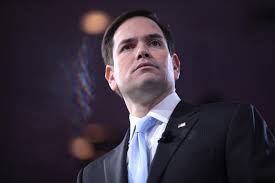G7 Summit: Tensions Rise as Western Democracies Grapple with U.S. Policies
Foreign ministers from G7 nations convene in Canada amid growing tensions over U.S. tariffs and policies on Ukraine. The meeting aims to address key issues, but finding consensus proves challenging. Washington's shifting stances, particularly on foreign policy and tariffs, strain relations with allies, notably Canada.

Foreign ministers from the world's leading Western democracies gathered in Canada on Thursday for the G7 summit, amid escalating tensions over U.S. foreign policy shifts. The group, comprising ministers from Britain, Canada, France, Germany, Italy, Japan, and the U.S., along with EU representatives, met in La Malbaie, a remote Quebec tourist town, for discussions on a range of contentious issues.
Central to the agenda were U.S. Secretary of State Marco Rubio's talks in Jeddah, Saudi Arabia, where Ukraine expressed readiness for a 30-day ceasefire. However, the meeting's lead-up struggled under the weight of the U.S. imposing 25% tariffs on steel and aluminum, prompting retaliatory measures from Canada and the EU.
Diplomats expressed hope that progress made in Jeddah could ease the deliberations. Nevertheless, the U.S.'s more diplomatic approach towards Russia under President Trump's leadership has signaled a shift that challenges traditional alliances, especially with Canada. The ongoing dialogue seeks to navigate these strained relations, with a focus on resolving tariff disputes and maintaining diplomatic cohesion.
(With inputs from agencies.)
ALSO READ
Trump administration steps up efforts to scrutinize foreign funding of universities
Maryland sues Trump administration to halt construction of ICE facility
UPDATE 1-Maryland sues Trump administration to halt construction of ICE facility
Historic Diplomacy: Modi's Pioneering Visit to Strengthen India-Israel Ties
Trump Administration U-turn on PreCheck Shutdown










